|
|
|

Plenary Lectures
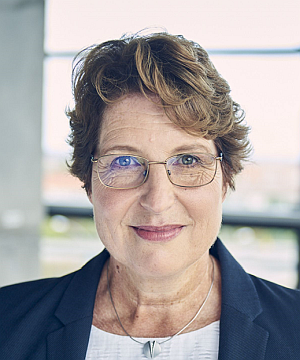 |
Brigitte VOIT (Leibniz Institute of Polymer Research (IPF) Dresden, Dresden, Germany)
Conference title: Responsive polymeric nanocapsules and multi-compartments as cellular mimics
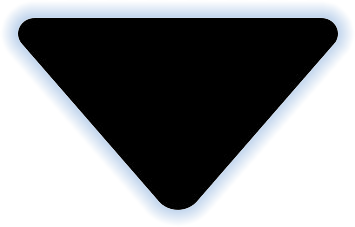

Brigitte VOIT received her PhD in Macromolecular Chemistry 1990 from University Bayreuth, Germany. After postdoctoral work in 1991/1992 at Eastman Kodak in Rochester, USA, she joined Technische Universität München. After habilitation in 1996, she was appointed 1997 full professor for "Organic Chemistry of Polymers“ at Technische Universität (TU) Dresden as well as Director of the Division Macromolecular Chemistry at the Leibniz Institute of Polymer Research (IPF) Dresden. From 2002 to 2022 she was also Scientific Director of IPF. At TU Dresden she is member of the Center for Advancing Electronics Dresden (CFAED), Dresden International Graduate School for Biomedicine and Bioengineering (DIGS BB), and the DFG Graduate School Hydrogel-based Microsystem. She is active in the European Polymer Federation (president 2014/2015), elected member of ACATECH, and holder of the Staudinger Award. Her scientific interest is in functional polymer architectures and responsive polymers for e.g. biomedicine, smart systems and organic electronics.
|
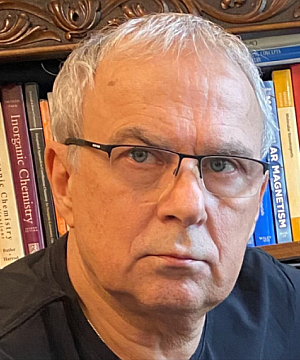 |
Marius ANDRUH (C. D. Nenitzescu Institute of Organic and Supramolecular Chemistry of the Romanian Academy, Bucharest, Romania)
Conference title: Magnetic and Luminescent Molecular Materials Constructed from Lanthanides
Marius ANDRUH studied Chemistry at the University of Bucharest and received his PhD in 1988. He was a post-doc in Orsay with Professor Olivier Kahn, and an Alexander von Humboldt fellow in Göttingen, in the group of Professor Herbert W. Roesky. His major research interests are focused on metallosupramolecular chemistry, molecular magnetism and crystal engineering. He was Chair of the Inorganic Chemistry Department at the University of Bucharest. Since 2021, Professor Andruh is Director of the C. D. Nenitzescu Institute of Organic and Supramolecular Chemistry of the Romanian Academy. He is member of the Romanian Academy (and Vice-President since 2022), member of the Academia Europaea, and member of the European Academy of Sciences. Marius Andruh is author of more than 330 papers, with an H index 53.
|
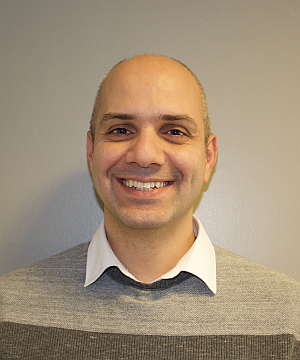 |
Remzi BECER (University of Warwick, UK)
Conference title: Precision in Polymer Synthesis: From Sustainable Polymers to Bioactive Glycopolymers
Prof. Dr. Remzi BECER has completed his PhD at Eindhoven University of Technology, the Netherlands (2009). He received a Marie Curie Research Fellowship (2009–2011) and joined University of Warwick, UK. He was awarded a Science City Senior Research Fellowship (2011–2013) to start up his independent research group at the same university. He was appointed (2013–2018) as a Senior Lecturer at Queen Mary, University of London. He is currently a Professor in Sustainable Polymer Chemistry at the University of Warwick (2019‐), acting as an editor of European Polymer Journal (2018‐) and chair of the RSC Macro Group UK. For more information visit https://warwick.ac.uk/fac/sci/chemistry/research/becer/becergroup/
|
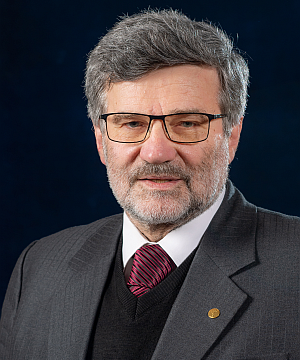 |
Cristian SILVESTRU (Babeş-Bolyai University of Cluj-Napoca, Cluj-Napoca, Romania)
Conference title: Structure and reactivity of heavy organopnictogens - from CO2 fixation to C-H bond activation


Cristian SILVESTRU (born on 1955, Baia-Mare) is Professor at Babeş-Bolyai University of Cluj-Napoca. His research activities concentrated on development of organometallic and coordination chemistry, with particular focus on Main Group metal compounds. In collaboration with foreign research groups, he brought significant contributions to the chemistry of hypervalent Main Group organometallics, reporting on the first examples of some new types of compounds as alkoxides, halochalcogenides, metal heterocycles, etc. as well as CO2 fixation, and C−H bond activation. He published more than 250 original articles and reviews in international journals (more than 4700 citations; Hirsch index of 36). From 2016 he is representative of Romanian Chemical Society in the Division of Organometallic Chemistry of EuCheMS. He is member of the Romanian Academy (from 2017), the European Academy of Sciences and Arts (Salzburg, Austria; from 2019) and the European Academy of Sciences (Brussels, Belgium; from 2021).
|
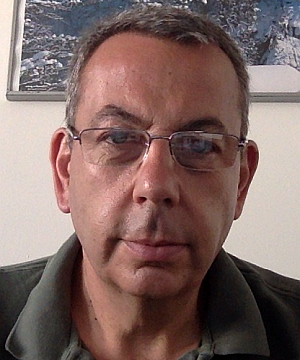 |
Michele LAUS (University East Piemonte, Alessandria, Italy)
Conference title: "Grafting to" Mechanism: An Enigma Revealed


Michele LAUS graduated in Industrial Chemistry with honours in 1983 and obtained a PhD in Industrial Chemistry in 1987. In 1997 he became Associate Professor of Industrial Chemistry and since November 2005, Full Professor of Industrial Chemistry and Polymeric Materials.
He spent periods as visiting professor at Cornell University (invited by Prof. C. K. Ober) and at the Martin Luter University of Freiburg (invited by Prof. W. Gronski).
At present, he is the Coordinator of EUPOC (European Polymer Conferences), President of AIM (Italian Association for Science and Technology of Macromolecules) and General Secretary of EPF (European Polymer Federation).
At the beginning, his research activity focused on the development of hybrid nanocomposites, functional micro and nanospheres for biomedical and analytical use and superstructural systems organized in 2D and 3D (polymer liquid crystals, monolayers and opals) for optical, microelectronic and sensor applications. Subsequently, the research was directed towards the study of materials for microelectronics through block copolymers and through the use of doping polymers, including the development of new precision polymers. Alongside these activities, two new lines of research have been activated relating to the synthesis of polymers using CO2 as a monomer and the preparation and study of reversible networks.
Prof. M. Laus is author of 280 articles in international journals and 20 patents with an H-index of 44. Furthermore, he has participated as an invited or plenary speaker in more than 100 international conferences.
|
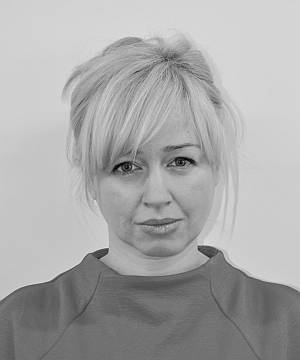 |
Agnieszka KOWALCZUK (Center of Polymer and Carbon Materials Sciences, Zabrze, Poland)
Conference title: New ways for functional nanomaterials: the journey from linear to star-shaped polymers
Agnieszka KOWALCZUK is an Associate Professor at the Centre of Polymer and Carbon Materials PAS, where she leads the Laboratory of Nano- and Microstructural Materials. Her research focuses on developing novel polymers for applications in medicine and nanotechnology. She specializes in anionic and cationic polymerization of oxiranes and cyclic imines, as well as controlled radical polymerization of (meth)acrylates, enabling the synthesis of macromolecules with precise composition, molar mass, and topology. Beyond linear polymers and copolymers, she is interested in designing branched macromolecules, including star-shaped, dendritic, and hyperbranched structures, particularly those responsive to environmental stimuli and functionalized for interactions with bioactive agents.
|
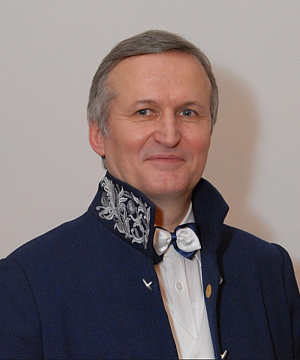 |
Ion TIGINYANU (Moldova Academy of Science, Republic of Moldova)
Conference title: Emerging functional hybrid nanomaterials based on Gallium Nitride and Aerogalnite


Ion TIGINYANU received his Ph.D. degree in Semiconductor Physics from Lebedev Institute of Physics, Moscow, in 1982. Starting from 2001, he serves as the founding Director of the National Center for Materials Study and Testing, Technical University of Moldova. In 2019 he was elected president of the Moldova Academy of Sciences. Professor Tiginyanu's research interests are related to nanotechnologies, smart nanomaterials and development of photonic and electronic novel device structures for various applications, including microfluidic and biomedical applications. He is Fellow of the International Science Council (https://council.science/profile/ion-tiginyanu/), honorary member of the Romanian Academy, honorary professor of Shizuoka University (Japan), member of the Academia Europaea (https://www.ae-info.org/ae/Member/Tiginyanu_Ion), Fellow of the International Society for Optics and Photonics (SPIE, https://spie.org/profile/Ion.Tiginyanu-18576#_=_), and member of AAAS, IEEE, Optica (formerly OSA) etc. For more information visit https://asm.md/en/membru?id=52.
|
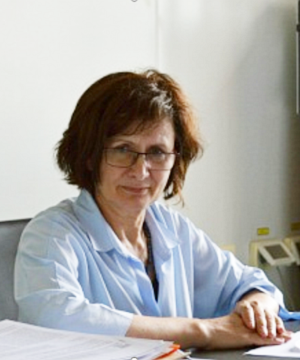 |
Mariana PINTEALA (Petru Poni Institute of Macromolecular Chemistry (ICMPP), Iasi, Romania)
Conference title: Engineering Functional Nanoplatforms for Bioimaging and Therapeutic Agent Delivery


Mariana PINTEALA studied chemical engineering and received her PhD at “Gheorghe Asachi” Technical University, Iasi, Romania, in 1995. She has been active in “Petru Poni” Institute of Macromolecular Chemistry since 1987 and from 2010 is the Head of the “IntelCenter” integrated into institute (www.intelcentru.ro). She has published more than 200 papers, 1 book and 12 book chapters, is evaluator for national projects in the chemistry field. The scientific and managerial activities include the successful coordination of two EU projects, 8 former national projects and 4 bilateral projects, as well as the participation to a former NSF grant and others. In addition, she has implemented the IntelCentre infrastructure project based on EU Structural Funds,
The research interests are focused on the development of polymer-based biomaterials, supramolecular assemblies of hydrophobic and hydrophilic (co)polymers; pseudo- and polyrotaxanes, (co)polymers containing cyclodextrins, and more recently on biomedical-oriented nanotechnologies (non-viral vectors for gene and drug delivery systems; nanoparticles based on metal and metal oxides for tumors imaging and therapy; development of fullerene, cyclodextrin, and polymer derivatives for medical applications; design of cyclodextrin inclusion complexes with different drugs as potential drug delivery systems).
|
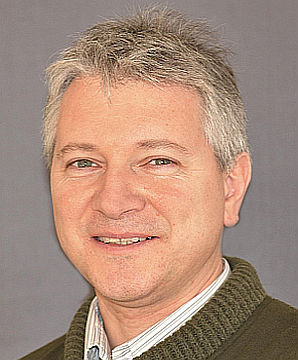 |
Aurel RADULESCU(Jülich Centre for Neutron Science, Jülich, Germany)
Conference title: Polymer membranes for energy applications characterized by neutron scattering techniques
Dr. Aurel RADULESCU is a senior scientist at Forschungszentrum Jülich GmbH in Germany and is primarily responsible for the small-angle neutron diffractometer KWS-2 at the Jülich Centre for Neutron Science at the Heinz Maier-Leibnitz Zentrum in Garching, Germany. He received his PhD in nuclear physics from the University of Bucharest, Romania, in 2000 and received a Young Scientist Award from the European Neutron Scattering Association in 1999. Between 2016 and 2021, he also served as a specially appointed professor at the University of Osaka, Japan. His current work focuses on semi-crystalline polymers, polymer-protein complexes and methodological developments in neutron scattering.
|
|




